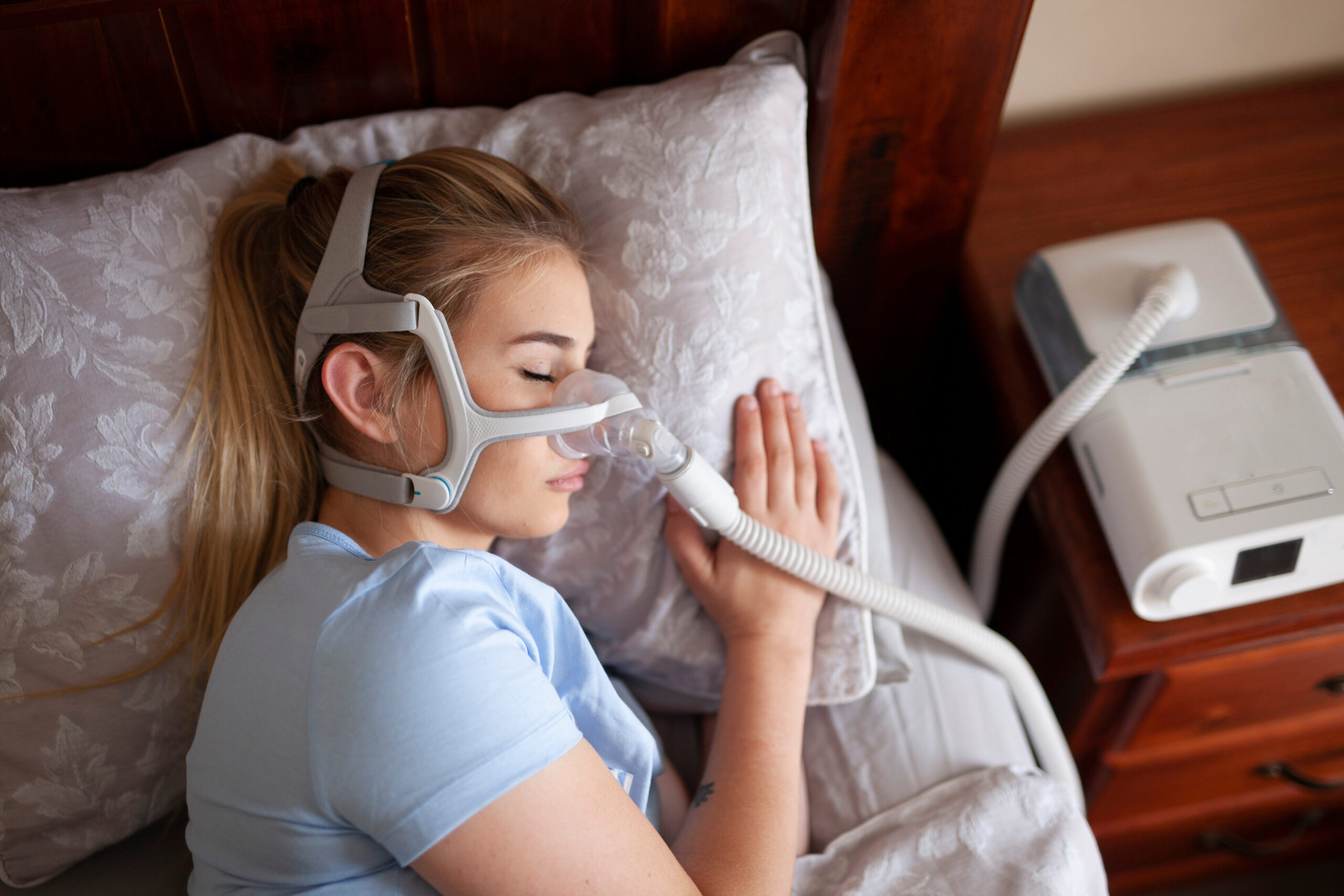
Quality sleep is a fundamental aspect of an athlete’s recovery process, especially for those involved in demanding athletic endeavors like bodybuilding. We’ve emphasized time and again the importance of this state of relative sensory inhibition and minimized physical activity for overall health and well-being.
Sleep is not merely a time for undisturbed rest. It’s a complex process involving multiple stages and systems within the body, playing a pivotal role in muscle repair, hormone regulation, cognitive function, and various other vital bodily functions. Deep sleep stages (N3 of Non-Rapid Eye Movement Sleep, or NREM), in particular, are critical, being the period during which the body repairs and regrows tissues, builds bone and muscle, and strengthens the immune system.
Securing quality sleep can be challenging, though. Factors ranging from lifestyle habits to sleep disorders like insomnia and sleep apnea can interfere with athletes’ ability to get the restorative sleep they need. Chronic sleep deprivation can lead to an array of health issues, both mental and physical, including obesity, heart disease, hypertension, diabetes, anxiety, depression, and impaired cognitive function.
Given these challenges, it becomes vital for athletes to understand and apply strategies to enhance their quality sleep. This is where the work of Dr. Andrew Huberman, a celebrated neuroscientist and professor at Stanford University, comes in. He has conducted extensive research on the mechanisms and strategies to enhance sleep quality, offering a range of evidence-based recommendations tailored for athletes seeking to optimize their restorative sleep. Dr. Andrew Huberman has conducted extensive research on the mechanisms and strategies to enhance sleep quality. This article will explore Dr. Huberman’s in-depth recommendations tailored for bikini bodybuilding athletes seeking to optimize their restorative sleep.

Recommendations
Light Exposure: Setting the Circadian Rhythm
1. Morning sunlight: Exposing oneself to natural light within the first 30 minutes of waking up helps regulate the circadian rhythm, improving sleep onset and quality. This light exposure helps reset the internal biological clock every day.
2. Limiting blue light before bedtime: Blue light emitted from electronic devices can interfere with melatonin production, a hormone crucial for sleep. To mitigate this, halt the use of screens 1-2 hours before bedtime or resort to blue light blocking glasses.
Temperature Regulation: Balancing the Sleep Environment
1. Maintain a cool bedroom: The optimal sleep environment is relatively cool, around 65°F/18°C. A cooler room helps to lower body temperature, a critical signal for quality sleep initiation.
2. Warm baths before bed: Taking a warm shower or bath 1-2 hours before sleep raises the body temperature temporarily. Upon leaving the shower, the subsequent drop in body temperature sends a powerful sleep signal to the brain.
Sleep Schedule: Building Consistency
1. Consistent sleep and wake times: Synchronizing sleep schedules creates harmony with your body’s internal clock, making it easier to fall asleep and wake up.
2. Avoid napping: While naps can be beneficial, long naps can impede nighttime sleep. Limit naps to 20-30 minutes and steer clear of napping close to bedtime.
Nutrition: Timing and Choosing Right
1. Avoid heavy meals close to bedtime: Completing dinner at least 2-3 hours before bedtime prevents sleep disturbances linked to digestion.
2. Limit caffeine and alcohol: Both caffeine and alcohol can interfere with quality sleep and should be avoided, particularly in the afternoon and evening.
Relaxation Techniques: Calming the Mind
1. Mindfulness meditation: Concentrating on your breath or practicing other relaxation exercises can calm the mind, fostering readiness for sleep.
2. Progressive muscle relaxation: By sequentially tensing and relaxing different muscle groups, you can release bodily tension and foster relaxation conducive to sleep.
Sleep Environment: Creating a Sanctuary
1. Clean, organized bedroom: A clutter-free space reduces distractions and induces a sense of tranquility, enhancing quality sleep.
2. Comfortable bedding and pillows: The right pillows and bedding contribute to improved sleep quality by providing comfort and support.
3. Reduce noise and light: A calm environment devoid of disruptive noises and light sources facilitates undisturbed sleep.
Exercise: Fueling Better Sleep
1. Regular physical activity: Regular exercise enhances sleep quality. However, rigorous activity close to bedtime can interfere with sleep and should be avoided.
2. Outdoor exercise: Exercising outdoors combines the benefits of physical activity and natural light exposure, helping regulate your circadian rhythm and improve sleep.
Limit Clock Watching
1. Constantly checking the clock when trying to fall asleep can provoke anxiety. Turn the clock away from your line of sight or cover it to eliminate this source of stress.
Develop a Bedtime Routine
1. Establishing a calming pre-sleep routine, such as reading, journaling, or gentle stretching, can signal your body that it’s time to wind down and prepare for sleep.
Get Out of Bed if Sleep Eludes
1. If sleep doesn’t come within 20-30 minutes of lying down, it’s advisable to leave the bedroom and engage in a low-stimulation activity. This practice helps avoid associating the bed with sleeplessness.
Beneficial Supplements for Sleep
In addition to these lifestyle modifications, certain supplements may enhance sleep quality. It’s important to remember, though, that while supplements can be beneficial, they should be used in conjunction with the other practices mentioned.
Magnesium:
Magnesium is an essential mineral that plays a role in muscle relaxation and nervous system regulation. Supplementing with magnesium, particularly in the form of magnesium glycinate or magnesium threonate, can promote relaxation and improve sleep quality.
L-theanine:
L-theanine, an amino acid found predominantly in green tea, promotes relaxation without causing drowsiness. It can help to reduce stress and anxiety, thus easing the transition to sleep.
Apigenin:
Apigenin is a natural compound found in chamomile that exhibits mild sedative effects. Consuming chamomile tea or taking apigenin supplements may help foster relaxation and improve sleep onset.
Notably, Dr. Huberman advises caution with the use of melatonin supplements. While they can be beneficial for some, over-reliance on melatonin can disrupt the body’s natural sleep-wake cycle and lead to dependency over time. Dr. Huberman underscores the importance of natural methods and lifestyle changes over supplements to enhance sleep quality.
Sleep, although often overlooked, is a crucial component of overall health and well-being. It’s a state characterized by altered consciousness, relatively inhibited sensory activity, and minimal physical activity. Sleep is a complex process that involves multiple phases and systems within the body and plays a vital role in a wide range of bodily functions.
Sleep Stages
Sleep is divided into several stages, namely NREM (Non-Rapid Eye Movement) and REM (Rapid Eye Movement) stages.
NREM sleep is further categorized into three stages:
N1: This is the lightest stage of sleep, a transition phase where you’re between being awake and asleep.
N2: During this stage, your body prepares for deep sleep. Heartbeat and breathing slow down, body temperature drops, and eye movements stop.
N3: This is the deep sleep stage. It’s hardest to wake up during this stage because this is when there is the least brain activity. It’s during this stage that the body repairs and regrows tissues, builds bone and muscle, and strengthens the immune system.
REM sleep, the most well-known sleep stage, is when most dreaming occurs. During REM sleep, the brain is nearly as active as it is when you’re awake. This stage is essential for memory consolidation and learning.
Importance of Sleep
Sleep is vital for many reasons. It allows the body and mind to rest, recover, and prepare for the next day. It’s during sleep that the body repairs cells and tissues, the immune system strengthens itself, and growth hormones are released, promoting growth and development in children and adolescents.
Sleep also plays a crucial role in cognitive function, affecting concentration, productivity, and cognition. Several studies have shown the impact of sleep on brain function and emotional and mental health.
Sleep Deprivation and Disorders
The lack of quality sleep or sleep deprivation can lead to many health issues, both mental and physical. Chronic sleep deprivation can lead to obesity, heart disease, hypertension, and diabetes. It can also negatively impact mental health, causing issues such as anxiety, depression, and impaired cognitive function.
There are also many sleep disorders that people can suffer from, such as insomnia (difficulty falling or staying asleep), sleep apnea (interrupted sleep due to difficulty breathing), narcolepsy (excessive daytime sleepiness), restless leg syndrome, and others.
The Role of Sleep in Athletic Performance
For athletes, sleep is the time when the most significant recovery happens. While we sleep, the body goes to work repairing and rebuilding muscle fibers damaged during training. The quality and amount of sleep an athlete gets can have significant effects on their performance and recovery. A lack of sleep can lead to decreased reaction times, reduced endurance, increased injury rates, and impaired decision-making abilities.
In conclusion, sleep is an intricate and essential physiological process. It plays a significant role in maintaining our physical health, brain function, emotional well-being, and for athletes, their performance and recovery. Given its importance, it’s crucial to prioritize good sleep hygiene and habits for optimal health and well-being.
Final Thoughts on Quality Sleep
Quality sleep is pivotal for any athlete. By adhering to Dr. Huberman’s evidence-based recommendations, bikini bodybuilding athletes can establish sleep practices that not only enhance rest and recovery but also contribute to better performance and overall health. Emphasizing natural methods and holistic lifestyle changes is the key to unlocking better sleep and ultimately, a competitive edge.



